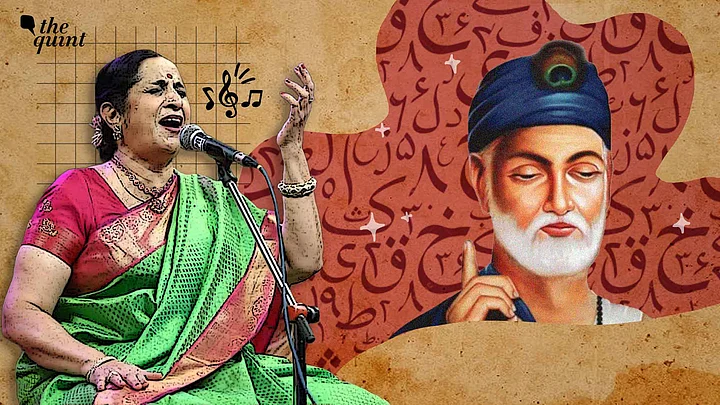Indian classical music has long embodied the wide spiritual and philosophical realms by the means of lyrics and performance. It travels across borders and boundaries and enraptures the audience with its soul-stirring quality.
Hence, creating and performing music that has a universal appeal, sharing and spreading words of wisdom articulated by great poets and philosophers as a means of furthering the rich legacy of classical music becomes every artist's prized dream.
In Kabir — the 15th-century mystic saint and poet's preachings, one finds philosophy of the highest order enmeshed in words of the simplest form. Its transcendental nature has found its way into the repertoire of Indian classical music, not just being a medium of sharing his teachings but also how it has impacted us as performing artists. Born a Muslim, he is one of the rare few to remain significant to people of all religions and communities, be it Hindus or Sikhs.
While bhajans (devotional songs) penned by Kabir when sung in classical, contemporary, and film music frequently invokes his wisdom, his poetic style contextualises his teachings in a larger devotional tradition. A chief exponent of the Bhakti movement, his poems fit seamlessly into the historical backdrop of the age-old movement that arose in multiple regions and languages throughout India.
Kabir Represents India’s Cultural Democracy
A pioneering figure who symbolises the multiplicity and syncretic fabric of India— Kabir was a master of language evidenced by the way he used powerful words to communicate the subtlest of ideas in the most blatant way.
He was a fierce social critic and iconoclast who probed and questioned, challenged and exposed and ultimately jolted his audience into facing the many truths of life and death. The characteristic feature of Kabir's poems is to deliver messages of humanity and life through simple, everyday actions and truths. In the most simplistic and accessible language, they drive home the point of inclusion and universality.
Kabir’s poems invite us to rethink our ideas of devotion and of God. While affirming some traditional aspects of worship, he decimates others.Though the poet’s writings have always been celebrated through the ages as a seminal era in Indian literature and poetry, they remain uncannily resonant in contemporary times.
Saint’s Radical Ideas on the Divine and Temporality of Life
Be it dohas like "Chalti chakki dekh kar, diya kabira roye" which speak of the impermanence of life, or "Maati kahe kumhar se", in which Kabir focuses on the need to temper our pride and brings in the circularity of life sans religion, faith or geography.
It is because of this very feature that one finds Kabir in not just classical music, but in other forms such as folk, semi classical, chants and congregational music. It comes with no rules attached on how it must be performed, making it adaptable to any kind of music. A prominent part of the oral tradition, the social contexts in which Kabir’s poems were composed and received remain relevant even today.
In an increasingly polarised world, Kabir's teachings remind us of the futility of division, difference, exclusion, and the need for unification. And as practitioners of Indian classical music, it has given us a voice to express this to listeners across the world.
The sixth edition of the Mahindra Kabira Festival held from 18-20 November and organised by Indian multinational automotive manufacturing corporation—Mahindra & Mahindra Group, on the ghats of Ganga, was a great platform to celebrate the ideas of equality and diversity of us as people and how through different musical forms, Kabir's teachings ring true for all of us as citizens of the world.
(Aruna Sairam is an Indian classical vocalist and Carnatic music singer. She is a recipient of the Padma Shri award from the Government of India and and has been elected as Vice Chairman of the Sangeet Natak Academy by GOI. She is famously regarded as the Music Ambassador of India. This is an opinion article and the views expressed above are the author’s own. The Quint neither endorses nor is responsible for them.)
